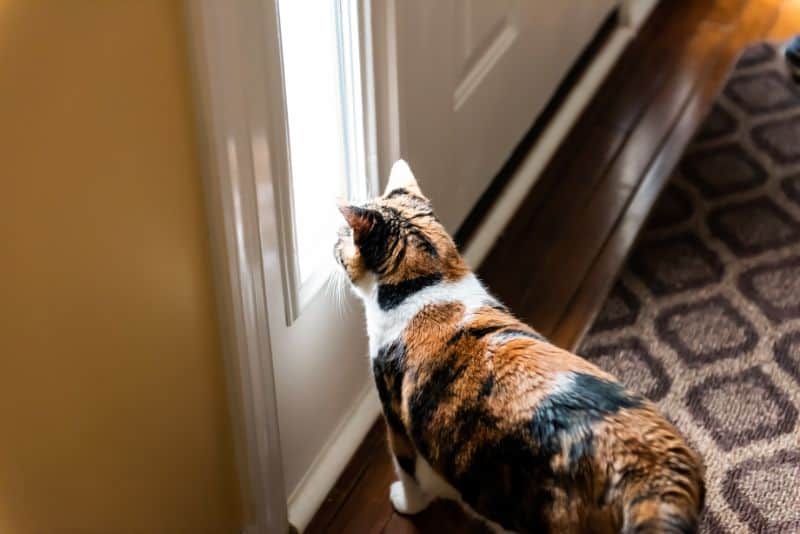Understanding Feline Separation Anxiety

When a cat owner returns home to find their cat anxiously awaiting their arrival, an instant ego boost is bound to occur. We might think, “They love me! They really, truly love me!” – but that explanation only goes so far.
Among other possibilities, the various symptoms of feline separation anxiety could be simmering just below the surface. There are many ways to counter the overwhelming symptoms, hopefully resulting in more confidence and control for both you and your cat.
Don’t Leave Me!
A cat suffering from feline separation anxiety fears loneliness, solitude, or abandonment. Unfortunately, many people think cats prefer their own company.
As highly social animals, cats not only like attention but depend on interactions with their trusted people and other pets, too. They are known to form deep attachments. If nothing else, we hope this serves as a reminder to attend to the emotional well being of pet cats.
They Were Fine…
Some signs of feline separation anxiety can happen out of the blue. This might be especially true after extended periods of close time. Even now in the midst of the coronavirus pandemic, people have appointments and errands to run. In other words, cat owners must leave their cats at home for various periods of time throughout the day, whether they like it or not.
Cats are creatures of habit. They like to anticipate certain events at key moments every single day. Scheduled meals, opportunities to play, your working hours (during which you may leave the house), and bedtimes are all important to a cat’s happiness. When their owner leaves unexpectedly and stays away for too long, feline separation anxiety can strike.
Signs of Separation Anxiety in Cats
The symptoms of feline separation anxiety include:
- Increased clinginess
- Physically trying to stop you from leaving
- Getting under your feet if you approach the door
- Increased vocalization
- Hiding or withdrawing from their owner
- Intense welcome when you return
- Soiling outside the litter box, and possibly on a personal item
- Inappetance
- Destructiveness
- Overgrooming
- Vomiting
Easing Feline Separation Anxiety
You might not necessarily know that your cat is experiencing separation anxiety,, but over time their symptoms may get worse and it will become obvious.
It is important to rule out underlying medical conditions that can also cause similar symptoms. Only then can we focus on easing your cat’s fears.
The following ideas can help:
- Spend time with your cat before you make preparations to leave. Give them ample time to run, chase, climb, and play.
- Reward them with a nutritious treat before you leave or supply a food puzzle to keep them busy.
- Stay calm and neutral as you start to gather your things, like your keys, jacket, etc. Try to remain neutral when you come home.
- Provide them with a perch, cat tree, hammocks, and bedding that feels good to them.
- Spray feline pheromones around the house, or leave them with one of your shirts to help soothe any frayed nerves.
- Set up a pet camera and treat dispenser to help your cat get through any time apart.
- If you cannot make it back home after several hours, be sure that your cat can be checked on by a friend or neighbor. We also offer safe, comfortable feline boarding.
If your cat needs more support to manage their feline separation anxiety, we can discuss the possibility of prescription medication. Please let us know if you have additional questions or concerns about your cat’s health and behavior.
